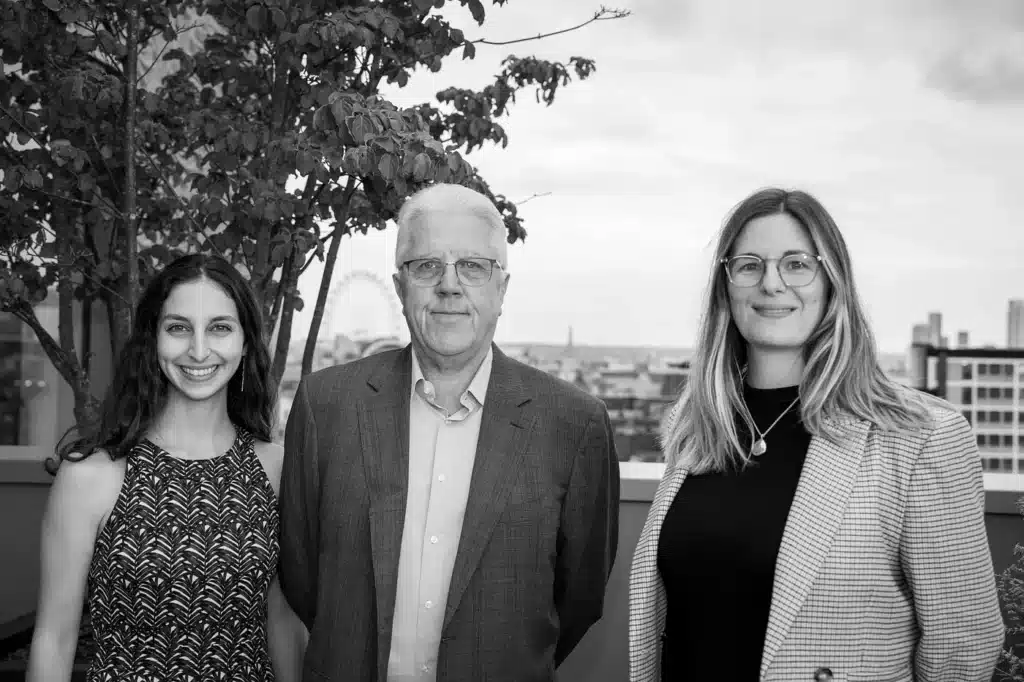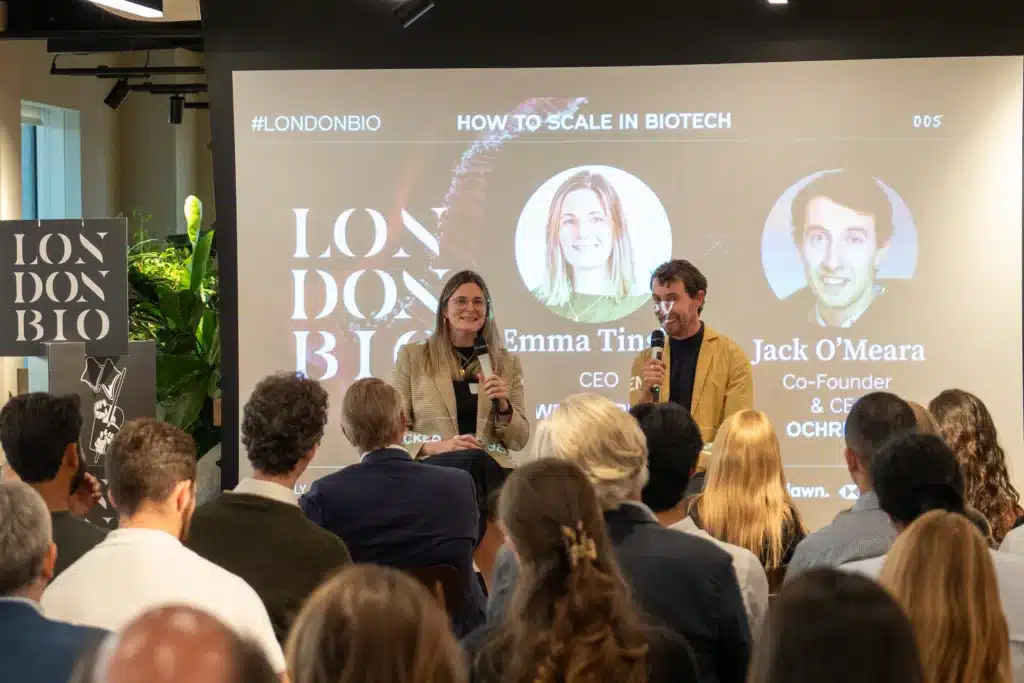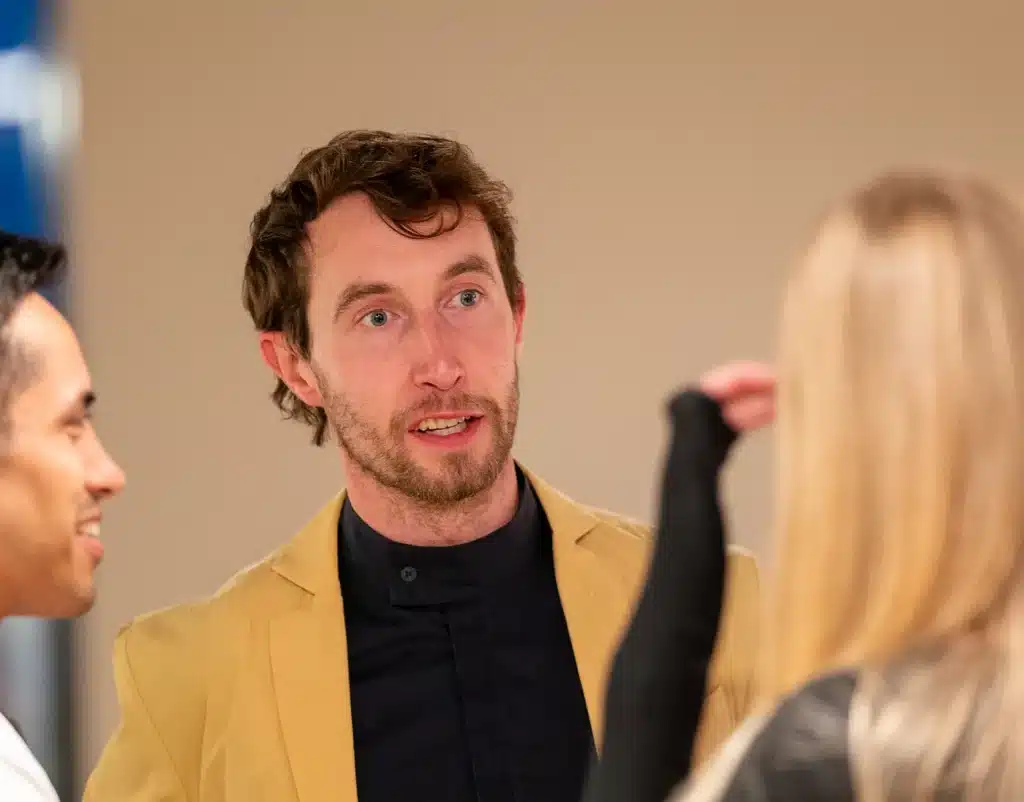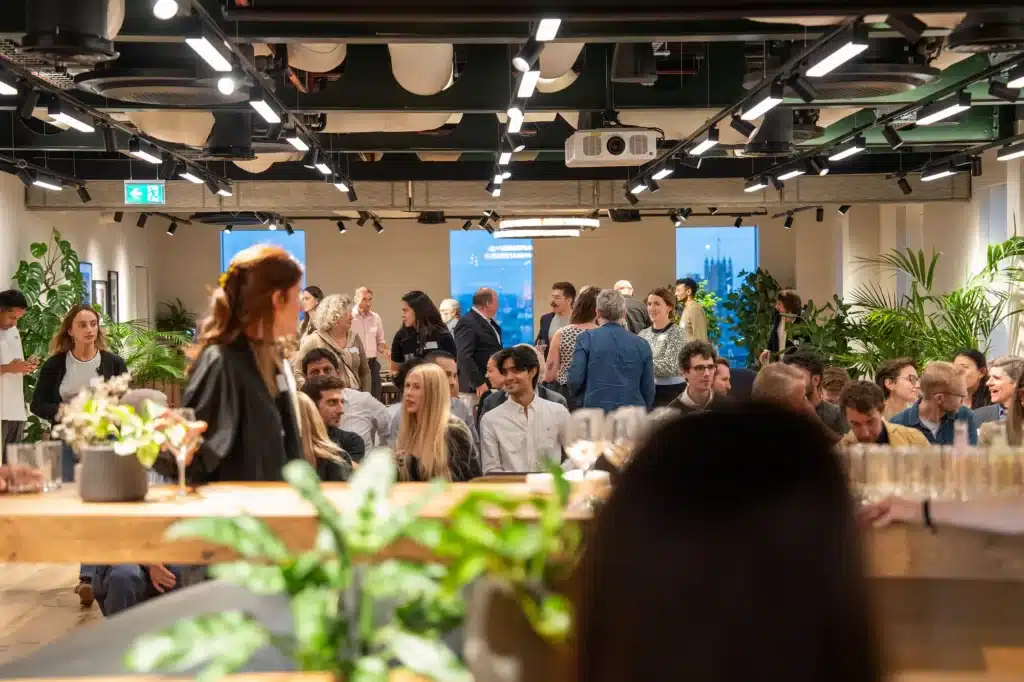This Wednesday, we marked the one-year anniversary of LONDON BIO — a forum that has quickly become a hub for the sharpest minds in biotech.
Every quarter we gather 80 techbio and life sciences practitioners from across London, Oxford, and Cambridge to share ideas, connect, and push the boundaries of innovation. From VC-backed founders, to postdoc researchers to early stage stealth projects, the purpose was to convene an open forum to discuss the opportunities and challenges of scaling in biotech. Co-founded by Alex Brunicki and Yasmin Siraj from BACKED and Jack O’Meara, founder of Ochre Bio, to serve the capital’s biotech need for a close community.
This week LONDON BIO was a platform for sharing war stories, debating the challenges of biotech clinical development and exploring cutting-edge innovations.
We welcomed keynote speakers Emma Tinsley (CEO, Weatherden) and Dr. Edwin Moses (Chairman, LabGenius) who shared witty anecdotes alongside deeply tricky decisions.


Emma Tinsley’s sparring partner was Jack O’Meara, (with a shared love of butter coloured jackets) followed by Dr. Edwin Moses who was interviewed by James Field, CEO of LabGenius with whom he shares a close relationship as Chairman of the Board of LabGenius.
Under Chatham House rules we cannot disclose too much (you’ll have to be there next time) but below we share some brief insights into the candid discussions, addressing some of the most pressing challenges facing biotech companies today.
Startup Board Governance: Key advice for biotech startups and early stage founders in the room was the importance of building strong boards. Boards are invaluable for strategic decision-making, such as fundraising, retaining equity, when to IPO, and how to hire/fire team members. The Chair can help the founder in many ways because it is a lonely role and ultimately it should remain the CEO’s decision to make any final calls, with the board in support along the way. A diverse advisory board will be stronger, with insights from an industry leader, pharma operator, scientist and clinical trial expert; the key is getting a multi-disciplinary team to work cohesively. The key advice to CEOs overall was to know your company’s value by keeping focus on the cash and the product go to market strategy.
AI in Clinical Development: This is a running theme we continue to address having recognised its importance in the April edition. The role of AI in drug development also sparked a lively debate. While AI’s potential to transform early-stage research is clear, many believe its real impact will come during clinical development, where structured data can help guide better decision-making and improve trial outcomes.

“Women exist, who knew!” A shocking discovery was made on the night that female health is indeed, important. Historically underfunded and under-researched, female health is one of the areas which requires market validation to encourage investment, as seen in the obesity space. Specifically, female health is often less invested in because of the lack of buyers and because the VC model requires investors to point to adjacent companies who have exited, thereby creating a negative feedback loop.
Clinical Biotech Company Leadership Advice: Key words of wisdom were shared regarding company management strategies when running a clinical stage biotech company. Stories and advice regarding how to manage relations with your Board during key inflection moments, how to both run and position your company to potential pharma partners or buyers, and the heads down priority areas a CEO should be laser focused on at this stage of development.

One common theme resonated through the talks: while biotech continues to make leaps in technology and innovation, the business and economic models underpinning it must evolve to keep pace. Whether it’s shifting focus from individual assets to platforms, rethinking the role of AI in clinical trials, or tackling underserved areas like women’s health, the discussions at LONDON BIO offered a roadmap for the future of the industry.
With thanks to our partners AWS for supporting LONDON BIO for the entire 2024 series — in particular to Patricia and Natalie for championing the partnership to showcase how AWS supports life sciences. And thanks to HSBC Innovation Banking and Dawn Capital for supporting this latest edition too.

